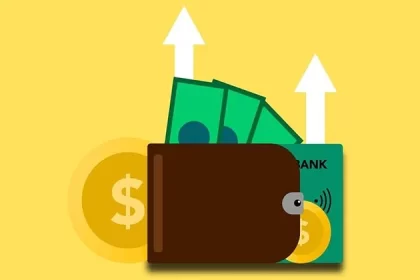Financial freedom is an important goal for the average person as many aspire to economic independence. However, this goal is not as simple because several factors affect the average person’s rise to financial comfort. Nonetheless, simplifying financial access to achieve financial freedom is possible under the right circumstances.
The finance industry has significantly contributed to making the world a global village. Today, anyone can send and receive funds by initiating cross-border transactions, even between different currencies. Transactions are also faster, with several third-party startups supporting quick and cheap payments.
The possibility for speedy transactions has influenced service providers, including online casinos, that offer quick withdrawals and deposits, with rapid registration available on their platforms thanks to new innovations like Pay N Play. Likewise, in the healthcare sector, digital payment solutions and fintech integrations are revolutionizing patient care by enabling seamless transactions for medical services and insurance. This simplifies the billing process while making healthcare more accessible and ensuring that treatments and medications can be quickly provided without the traditional financial bottlenecks.
But, while celebrating the varying forms of financial access, it is necessary to further simplify the process so that people are financially free.
Understanding Financial Access
Financial access is simply the ability of private and public entities to access financial financial products and services, such as banking, insurance, investment, and credit facilities. The possibility of financial independence is primarily predicated on people’s ability to access these financial tools to build wealth or at least maintain a healthy level of financial security. To achieve this, there are several factors that individuals, corporate organizations, and all stakeholders must consider in the journey towards improving global access. These factors include possible barriers to financial freedom as well as required solutions to the problem.
Financial Literacy
Many people have limited knowledge of financial concepts like saving, investing, and budgeting. These concepts are crucial to building wealth and are inevitable for people looking for financial freedom. Without proper financial literacy, people would likely make decisions that lead them away from their goals.
Improving financial literacy is possible through the following ways:
- Education: People should be very hungry for knowledge and take the time to find educational resources. Many key financial concepts and strategies are available in books, online courses, and finance workshops.
- Budgeting: Budgeting is essential for everyone regardless of individual financial levels. Creating a budget and sticking to it can help to maintain a definite spending habit irrespective of income level.
- Guidance: Seeking professional opinions is vital, especially for beginners. A financial advisor can give general advice and also help create individual financial plans carefully tailored to personal goals and lifestyles.
- Stay Informed: Finding and keeping abreast of up-to-date information on financial news can help people make better financial decisions based on economic events.
Access to Banking Services
According to the World Bank, the number of adults with a bank account increased by 50%, from 2011 to 2021. Despite this growth, the World Bank also noted in a 2017 study that more than 1.7 billion adults remain unbanked. There also is the underbanked population, referring to people who have limited access to a full range of banking options. People in either category may struggle to achieve complete financial independence or freedom.
The following are a few ways to improve global access to banking services:
- Amplify Banking Infrastructure: This is a move for big corporations and government entities. Many economists, including former World Bank Group President Robert B. Zoellick, have said that providing financial services to unbanked and underbanked people could boost global economic growth. Investments in building bank branches, supporting financial startups, and installing automated teller machines (ATMs) in remote or underserved areas could increase the general use of banking services and improve financial access. Cryptocurrencies are also helping reduce the number of unbanked or underbanked individuals thanks to their lower barriers to entry.
- Support Financial Inclusion: Governments must support financial inclusion by implementing policies that allow companies to easily offer financial services, especially with affordable charges.
- Embrace Technology: Corporations must leverage technological advancements that provide alternative banking solutions. These may include mobile banking apps and other financial management tools that simplify the process of accessing and spending money. Individuals may also consider using cryptocurrency and blockchain technology to remain connected to the financial sector outside of limited traditional options.
Credit System
Some purchases, including cars and homes, are usually too expensive for the average person. This is why a good credit system is important to financial access. A credit system is also an excellent way for people to participate in certain investments, including business and education. However, many still face obstacles in accessing credit, attributed to factors such as inadequate collateral and poor credit history.
Improving access to credit includes the following:
- Alternative lending options: Entities like peer-to-peer lending platforms and online lenders help democratize access to credit. This not only relieves the pressure on traditional lenders but also decentralizes the credit system to avoid control by large financial institutions.
- Credit Building: Regions operating a credit system require people to build a positive credit history. This entails specific steps, including making timely repayments on existing debt.
- Fair Lending Practices: Promoting safe and inclusive lending practices helps avoid discrimination and opens the credit system to all qualified applicants regardless of socioeconomic status, ethnicity, or race.
Achieving financial freedom is within reach for most people. However, the process requires deliberate efforts at learning and taking active steps by building credit, seeking professional advice, and embracing investment opportunities. By doing this, individuals can take control of their financial futures and work towards stability to build wealth, security, and all-round prosperity.










